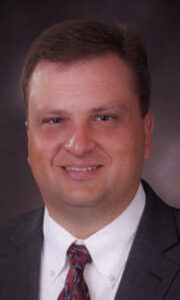Jobs, Medicaid, prisons on agenda
By Staff
From staff and wire reports
July 26, 2002
JACKSON Mississippi lawmakers will have a full agenda Tuesday when they return to the Capitol for their second special session of the year.
Gov. Ronnie Musgrove is asking legislators to consider a $31.5 million bond package to help Howard Industries expand its computer and transformer manufacturing plant near Ellisville.
The project could provide 2,300 high-tech jobs and help keep a Mississippi company from moving some operations out of state. The company is putting up $80 million of its own money.
Musgrove also wants legislators to lift a restriction on when Medicaid can spend its budget and to approve new spending plans for privately managed prisons.
At least one state lawmaker, Rep. Bobby Moody, D-Louisville, and chairman of the House Public Health &Welfare Committee, said he had not received word of the special session.
Medicaid has been struggling with a tight budget, and Musgrove wants legislators to kill a restriction that says the program can spend only a quarter of its budget every three months. Doing so would give Medicaid officials more flexibility to restructure the program in coming months, he said.
The special session also could solve a problem with Mississippi's prison system: The state lacks enough money to operate its privately-run prisons. Musgrove said he will reveal more detailed prison plans today.
Corrections Commissioner Robert Johnson said the state will close Delta Correctional Facility near Greenwood by Sept. 20. The 835 inmates there will be sent to other prisons and regional jails starting next month, he said.
We've got a surplus of medium-custody beds. That's a medium-custody bed facility,'' Johnson said. We just don't have a need for 1,000 beds at this point in time. We may need the beds as early as a year from now.''
Nashville-based Corrections Corporation of America has been managing the Delta prison.
Greenwood Mayor Harry Smith said the company faxed his office late Wednesday saying 192 of the facility's 204 employees could be affected by the closing.
Johnson could not confirm how many employees will lose work, but said MDOC will help them find new jobs in state-run prisons.
When the new state budget year started July 1, the Department of Corrections canceled its contracts with private companies that manage prisons in Leflore, Marshall, Wilkinson, Lauderdale and Leake counties.
Johnson said the state lacked money to pay for the contracts because Musgrove had vetoed part of MDOC's budget in the spring.
Musgrove has been renegotiating private prison contracts and says he can save the state $6 million to $12 million a year.
Only a governor can call a special session and set its agenda. Musgrove is straying from his usual practice of calling a single-topic session, and legislators expect a hectic work pace.
We're going to be loading the wagon up pretty heavy to get it all done in one day,'' said Rep. Pat Montgomery, D-Pontotoc.
The first special session this year was June 21, when lawmakers approved a $68 million bond package so Nissan can expand its manufacturing plant that's under construction in Madison County.
Bob Rohrlack, executive director of the Mississippi Development Authority, said Howard Industries officials approached the state a few weeks ago about expansion plans.
He said the company was considering taking some jobs out of state.
We obviously said no, no, no, no existing businesses, we keep here,'' Rohrlack said. We were very quick to respond and work with them on how we could get this deal done.''
Musgrove said Mississippi should invest in homegrown businesses.
The work we do on July 30 may not affect what happens on Wall Street in New York,'' Musgrove said. It will affect what happens on Sawmill Road in Laurel and every street where the employees and future employees of Howard Industries live.''
Mitch Stennett, president of the Economic Development Authority of Jones County, said the south Mississippi county hopes to become a technology hub.
What we're seeing now is more reasons that we can increase the skills of local people retraining, adult education to bring their skill levels up, some of them, to where we can find and recruit even more high technology jobs,'' Stennett said.
Communities Editor William F. West contributed to this report.










